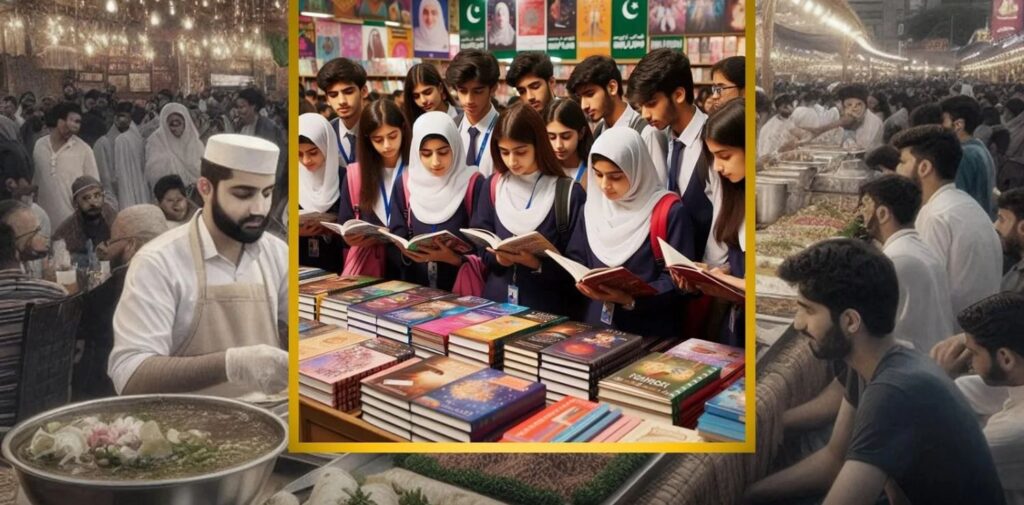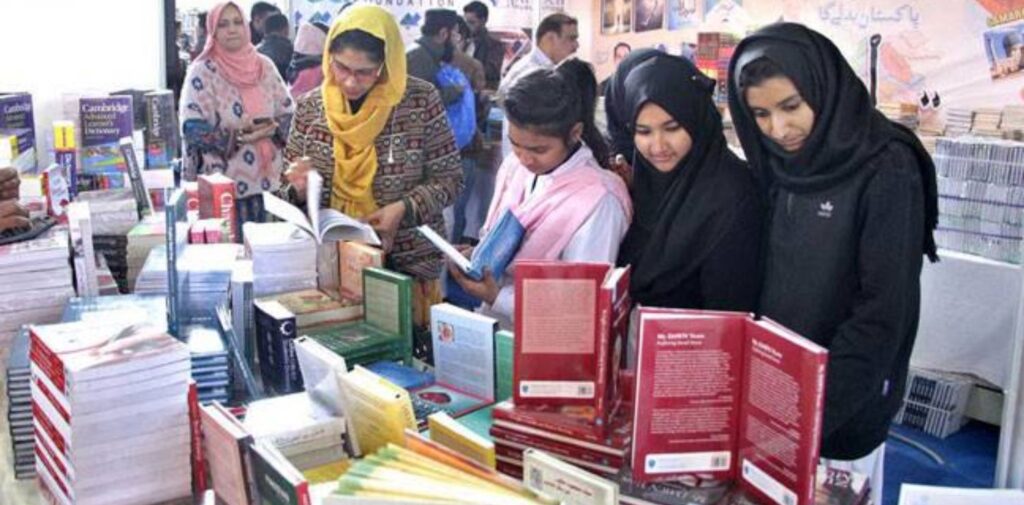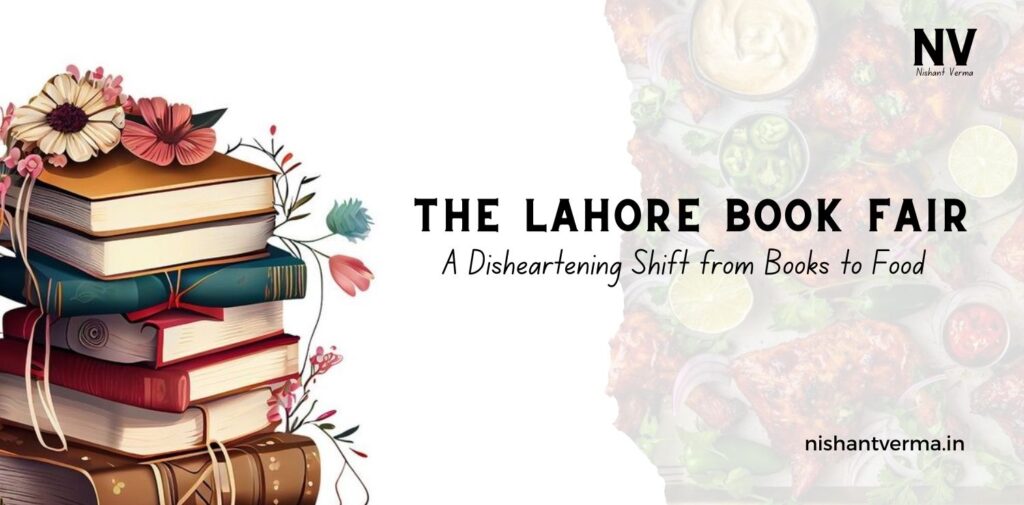The recent Lahore Book Fair has become a startling reflection of the current state of education in Pakistan. With only 35 books sold during the event, it is clear that the focus has shifted away from literature and knowledge, transforming what should be a celebration of books into a non-vegetarian food fest. This troubling trend raises serious questions about the priorities of Pakistani society and its government, particularly in an age where education is crucial for progress.
A Disappearing Culture of Reading: Lahore Book Fair
Book fairs have traditionally been vibrant gatherings that promote reading, learning, and cultural exchange. They provide a space for authors, publishers, and readers to come together, share ideas, and celebrate literature. However, the Lahore Book Fair’s transformation into a food fest signifies a dramatic decline in the appreciation for books. This shift is not merely about the presence of food stalls; it highlights a broader societal neglect of education.
In a country where literacy rates are alarmingly low—hovering around 59%—the implications of this trend are severe. Instead of fostering a love for reading, we are witnessing a culture that prioritizes food over knowledge. When events meant to celebrate literature devolve into culinary spectacles, it reflects a growing indifference towards education among the general public.

The Government’s Failure
The responsibility for this decline lies heavily with the Pakistani government. For decades, education has not been a priority for successive administrations. While many countries invest heavily in educational infrastructure and resources, Pakistan continues to lag behind. Public schools are often underfunded, overcrowded, and lacking in essential resources. Teachers are not adequately trained or compensated, leading to a decrease in the quality of education.
This negligence does not only affect the present; it threatens the future of the country. Without a strong educational foundation, the youth of Pakistan are left ill-equipped to navigate the complexities of the modern world. The government’s failure to prioritize education creates a cycle of poverty and ignorance, where young people are more vulnerable to radical ideologies and extremism.

The Rise of Extremism
In a society where education is not prioritized, extremism can take root. Uneducated individuals are often easier to manipulate, making them susceptible to radical ideas. When young people are not engaged in productive learning, they may turn to extremist groups that promise purpose and belonging. This cycle is alarming and highlights the urgent need for educational reform.
The Lahore Book Fair’s transformation into a food fest is not merely a cultural shift; it is a symptom of a deeper societal issue. If the current trend continues, we may soon face a scenario where book fairs evolve into weapon fairs. The failure to instill a love for learning and critical thinking in young minds could lead to a future where violence and extremism are normalized.
The Cultural Implications
Culturally, the shift from books to food represents a dangerous trend in Pakistani society. While food is undoubtedly an essential part of our culture, it should not overshadow the significance of education and intellectual growth. Celebrating culinary traditions is important, but it should not come at the expense of literary appreciation.
In countries where education is valued, literature and the arts are celebrated. Authors and thinkers are revered, and reading is considered a vital aspect of personal development. In contrast, the glorification of food at events meant for literature speaks volumes about the values being promoted in Pakistan.

The Need for Urgent Reform
To address this alarming trend, immediate action is required. The government must recognize the importance of education and take decisive steps to improve the current system. This includes increasing funding for public schools, ensuring that every child has access to quality education, and fostering an environment where reading is encouraged and celebrated.
Reforms should focus on innovative teaching methods that engage students and make learning enjoyable. The curriculum should be designed to encourage critical thinking rather than rote memorization, allowing students to develop their own ideas and perspectives. In addition, the government must invest in teacher training and resources to create a positive learning environment.
Reinvigorating Book Fairs
Book fairs should be revitalized as celebrations of knowledge and culture. They should not just be about selling books but also about engaging the community in discussions, workshops, and activities that promote reading and learning. Authors should be invited to share their insights, and local schools should be encouraged to participate.
By transforming book fairs into educational festivals, we can rekindle a love for reading and inspire the next generation. Events can include storytelling sessions for children, poetry readings, and panel discussions on various topics that stimulate intellectual curiosity.
A Call to Action
The future of Pakistan hinges on our ability to nurture educated, informed citizens. As we witness the unfortunate decline of book fairs into food fests, it is crucial for everyone—government officials, educators, parents, and citizens—to recognize the importance of education.
We must take action to reclaim the narrative surrounding education in Pakistan. The youth of today are the leaders of tomorrow. If we continue to neglect the value of education, we are jeopardizing not only our present but also our future.
In conclusion, the transformation of the Lahore Book Fair from a celebration of literature into a food fest is a troubling sign of the times. The government must prioritize education to cultivate a culture that values knowledge over consumption. If we do not act now, we risk a future where book fairs turn into weapon fairs, marking the end of an educated society. It is time to stand up for education and ensure that the voices of authors, thinkers, and learners are heard above the clamor of food stalls. Only then can we hope to create a brighter future for Pakistan.




